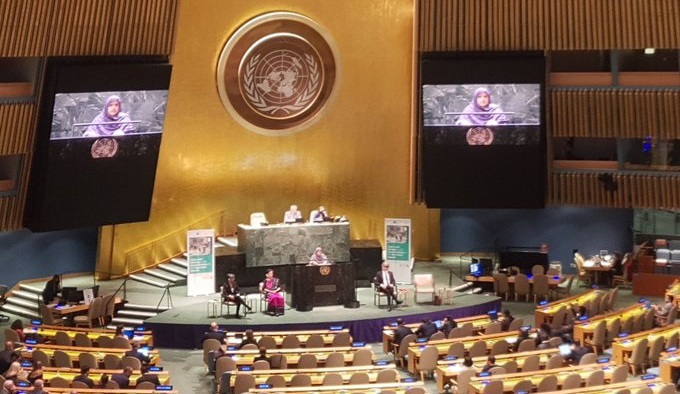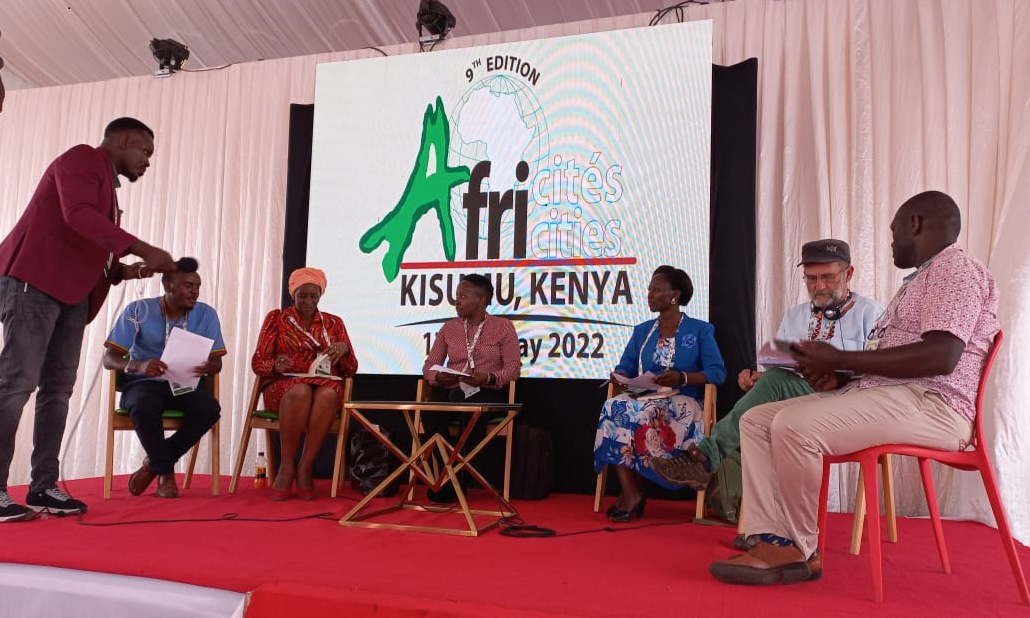
In Kenya all land is either owned by individuals, or held in trust. The government holds public land in trust for all the people and local authorities hold Trust Land in trust for people resident in the area. There is some law to ensure that public land held in trust is not misallocated to individuals. But gross abuse of public trust and of the law was rampant under the former government. This resulted in widespread land grabbing and related corruption. The poor were badly affected. So were the wetlands, coastal tracts, forest lands, and urban open spaces.
In 1995, Mazingira Institute convened the Habitat Task Force (HTF) under the National Council of NGOs to advocate for housing and land rights and to oppose forced evictions. The institute, in collaboration with HTF and the Human and Legal Rights NGOs, initiated a campaign of civic education and public awareness, create a database, and launch advocacy, civic action, legal aid and community organizing.
A national public forum established the Operation Firimbi Action Network comprising local chapters. Kenyans were encouraged to blow the whistle on land grabbing and the land grabbers, including corrupt public officials and politicians, exercising authority and control for personal economic and political gain. They were encouraged to use the power of organization for maximum effectiveness and to re-assert the rule of law, respect for human rights, and commitment to just governance for the management of public land and its protection.
From the outset, the campaign ran into problems associated with the hostile political environment prevailing at the time and a lack of financial resources.
The strategy deployed to deal with the hostile political environment was to implement the campaign under an umbrella NGO organizational framework to protect individuals and organizations from attack, intimidation, victimisation, and to ward off deregistration by the authorities of the organizations involved.
The public response after a media campaign was overwhelming and resulted in 375 cases of land grabbing being reported. Although such gatherings were often banned, the public forum attracted people countrywide.
The fact that Kenyans are blowing the whistle everywhere in the country on land grabbing and grabbers, including the corrupt public officials and politicians involved, is an achievement which can be attributed to Operation Firimbi Campaign.
The objective of stimulating public awareness of the blatant illegality of public land grabbing and to slow it down was achieved. The database on land grabbing today is the only source of documentation available to the public and over 375 case files are accessible.
Operation Firimbi Action Network now has 167 local chapters, and it is growing. There is also progress reasserting the rule of law.
Dependence on land is fundamental to socio-economic wellbeing in a country like Kenya where social welfare is very low. The wealth and poverty of the nation is reflected in the inequitable distribution of land. It is further aggravated by illegal misappropriation, and related destruction of natural resources. Forced evictions of the poor often results from misallocation of public land they live on.
On the environmental front, the campaign has exposed how land grabbing affects wetlands, forest, coastal lands, and urban open spaces. Nairobi’s Karura Forest adjoining the UN Complex, is the best known case, but by no means the only one. It was direct action and protest by groups like the Greenbelt Movement, Operation Firimbi, religious communities, parliamentarians, and others, which exposed misappropriation, destruction of the natural environment and stopped the real estate development.
Culturally, the campaign recognizes that the core of African philosophy, and most traditional thinking, rests upon consensus, and in many cases, it still does. After coming together to consider all the options around a particular problem, a consensus is allowed to emerge about the best way forward in the interests of the community. This is still common experience in many small communities. Operation Firimbi Action Network uses this cultural strength in building local chapters.
Lessons drawn from the campaign show that it is an ongoing process, akin to germinating a seed, and transplanting and nurturing it to maturity.
The campaign is pressuring the government to deliver its promise of addressing the past evils of plunder of public land and corruption by putting in place mechanisms and measures for restoration and recovery.
Operation Firimbi received international acclaim when it was awarded the 1999 UN-HABITAT Scroll of Honour award for promoting secure tenure and transparent land allocation. The award is
presented every year by UN-HABITAT, on World Habitat Day, to organizations or individuals for their outstanding contributions to human settlements.
Davinder Lamba, is Coordinator of Operation Firimbi. He was appointed to the Presidential Commission of Inquiry into the Illegal and Irregular Allocation of Public Land, established in July 2003. This article is excerpted with the kind permission of the Settlements Information Network Africa (SINA) Newsletter (no. 56, March 2003).


